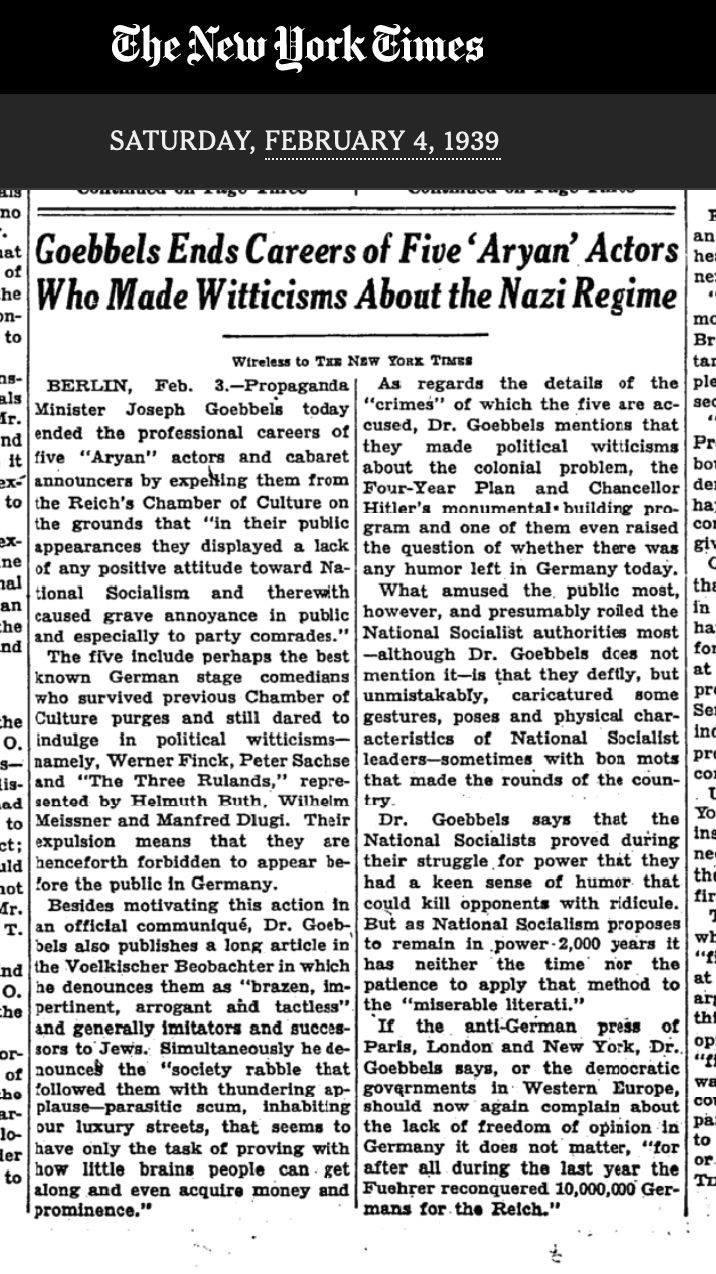Photo compliments of Maria Kovalets.
Dear Friends of the Pilgrim Letter,
Free speech is the subject of this edition…which should surprise no one. In the first section, I explain the expansive protections for free speech in America guaranteed by the First Amendment. I illustrate First Amendment’s broad power using some surprising events from recent and more distant U.S. history.
Because the Letter’s goal is to assist American Christians in how to conduct themselves in this increasingly threatening environment, the second section of my missive examines how freedom is at the core of Jesus’ message and, indeed, at the center of the entire Bible. Longtime readers of the Letter will observe that I have shortened my Biblical analysis to focus on a selection from Luke 14 that highlights Jesus’ determination to liberate us from the powers that bind us.
In the POSTSCRIPT, I take a brief look at why political leaders so often attack free speech and most aggressively lash out at individuals who practice comedy and satire.
Thank you for joining me in the Great Adventure, Patrick+
HATE SPEECH
Hate speech is all the rage. I mean that both literally and figuratively.
My first encounter with hate speech was in my first semester of Latin II class in 1970. Roy, who sat behind me, thumped my ear with his index finger and whispered, “I hate you Gahan, and I am going to beat you with a chain.” As far as I know I had no previous altercation with Roy or even a conversation with him for that matter. Perhaps he was all fired up because that day we were translating selections from Caesar’s Gallic Wars, the Commentarii de Bello Gallico to us neophyte Latin scholars”.
My ear was throbbing. Against the backdrop of Sister Frances’s lecture given in a soft unvarying key … “about 50 BC, to advance his political career and repay his many creditors, Gaius Julius Caesar wrote these inflated accounts of his legions’ victories in what we know today as France, Belgium, and Switzerland…,” Roy accelerated his barrage of throaty threats. I wanted to listen to Sister, but instead, I heard the repetitive voice of my mother thrumming in my head, as if on a sound loop: “Son, sometimes you have to put up your dukes.” When I could bear it no longer, I got up and whacked the left side of Roy’s head so hard than he fell out of his desk.
Sister, for her part, looked over the top of her readers for a moment, then proceeded with Caesar’s opening line, “Gallia est omnis divisa in partes tres,” Gaul is divided into three parts. Such was life in a monastic boarding school in those days. Roy ceased his hate whispers and became a fairly dependable translation partner.
Sandy Hook and the First Amendment
I had not thought about hate speech much until thirteen years ago when, on December 14, 2013, twenty-year-old Adam Lanza strode into Sandy Hook Elementary School in Newtown, CT and murdered twenty children — all first graders, ages six and seven, along with six teachers and staff. Mere hours after the shooting, Alex Jones of Infowars posted, "Sandy Hook is synthetic, completely fake with actors... manufactured.” The online conspiracy theorists’ site claimed that the government staged the event as precedent to forcibly take away Americans’ guns. At the time, Infowars enjoyed 10 million views per month.
Infowars perfidious claims proved unbearable for the twenty sets of parents. In desperation, they took legal action. But here’s the kicker. The parents did not seek criminal action based on Alex Jones’s hate speech, because they had no grounds to do so. Hate speech is protected by the First Amendment of the Constitution. Justice Samuel Alito, the paragon of conservatism on the Supreme Court and a Constitutional “originalist,” ruled in 2017 that the government has no business “preventing speech expressing ideas that offend. That idea strikes at the heart of the First Amendment.” Alito went on:
‘Speech that demeans on the basis of race, ethnicity, gender, religion, age, disability, or any other similar ground is hateful.’ Then he added the words of Justice Oliver Wendell Holmes in 1929: ‘The proudest boast of our free speech jurisprudence is that we protect the freedom to express “the thought we hate.”’ (Liptak, NYT)
The Sandy Hook parents were forced to file a civil case against Jones for “defamation and the intentional infliction of emotional harm.” Alex Jones, Inforwars, and its parent company Free Speech Systems, LLC were ordered to pay the parents 1 billion dollars. As for Jones, he is back at exercising his hateful speech and extending it across international borders. On April 24, a Calvinist Methodist Chapel was set ablaze in Port Talbot in Wales. Posting on X, Jones declared the fire was started by two Pakistani migrants. “Christianity is under attack in the UK,” he posted without evidence. Later, two local teenage boys were arrested and charged with the offense. Regardless, Jones’s completely invented account received 2.7 million views.
The ACLU for Nazis?
The astonishing scope of the First Amendment has sometimes caused great consternation in the U.S. During my first year of military service, one of the most valiant and costly episodes of American free speech occurred in Skokie, IL. In March 1977 the National Socialist Party of America (NSPA), better known as the Nazis, applied to march through the city on May Day, May 1. The venue was not haphazardly chosen. At the time, Skokie had the largest community of Holocaust survivors in the entire United States. A fierce and immediate uproar broke out across the U.S. over the application in Skokie.
Surprising the nation and the world, Aryeh Neier, the Director of the American Civil Liberties Union, better know as the ACLU, took up the case and defended the Nazis right to march. The ACLU’s position infuriated the public. What was more astounding, however, was that Neier was a Jew born in Berlin who barely escaped the clutches of the German Nazis in 1939. Neier later wrote about his experience at the helm of the ACLU in his book, Defending My Enemy: Skokie and the Legacy of Free Speech. The justification for his actions are as foundational to our democracy today as in 1977:
Every time we uphold a constitutional freedom in this country, it is a blow against the likes of the Nazis though it may seem fleetingly to be in their favor. If the constitutional freedom of those detested is allowed to be chipped away, our own freedoms will surely go next. Ironically, the Nazi victory in the Skokie case was a terrible defeat for them and was a towering triumph for those who despise the Nazi philosophy and favor freedom. In a free society, one cannot build walls to shut out threatening idea. (Elikann, Western New England Law Review)
Neier’s and the ACLU’s refusal to “build walls to shut out threatening ideas” was costly. In the aftermath, the organization lost more than 30,000 members and $500,000 in annual support — $2,700,000 in today’s dollars. We should not be surprised, freedom is always costly. Bondage, on the other hand, comes pretty cheap.
Frank Collin was the leader of the National Socialist Party of America at the time of the proposed Skokie march. Photo compliments of ABC News.
JESUS’ HATE SPEECH
Luke 14:25-35
Getting our priorities straight
The choice of freedom over bondage is one of the great themes of the Bible. Who could forget that when the Israelites had been freed from Pharaoh for less than two months they rail at Moses about missing their old life of slavery: ‘If only we had died by the LORD’s hand in Egypt! There we sat around pots of meat and ate all the bread we wanted, but you have brought us out into this desert to starve this entire assembly to death’ (Exodus 16:3). God’s people were singing the same sad song 1,500 years later as Paul began establishing the earliest Christian churches. During his first missionary journey to Galatia in Central Asia Minor in 48 AD, Paul established several churches. Mere months later, he discovered that a band of traveling evangelists had beguiled the Galatian churches with a false gospel that demanded they bind themselves to the Jewish law. Paul is furious as he pens his Letter to the Galatians, the very first writing of the New Testament: ‘It is for freedom that Christ has set us free. Stand firm, then, and do not let yourselves be burdened again by a yoke of slavery’ (Galatians 5:1). Lest we think Paul is only passably angry, he lets the Galatian men know in graphic terms what he thinks about the interlopers’ insistence that they undergo the Jewish rite of circumcision: ‘I wish that those who are troubling you that circumcision is necessary for salvation would go all the way and castrate themselves!’ (Galatians 5:12, Amplified)
St. Paul Writing His Epistles, Valentin de Boulonge, 1618, Houston Museum of Fine Arts.
Paul’s uninhibited language shocks us. Yet, no matter how many times we read the words or hear them at worship, we are far more rattled by Jesus’ famous hate speech:
‘If anyone comes to me and does not hate his own father and mother, and wife and children, and brothers and sisters—yes, and even his own life—he cannot be my disciple’ (Luke 14:26).
Obviously, Jesus had not read Dale Carnegie’s 1936 classic, How to Win Friends and Influence People. If he had, he may have chosen different words, especially considering that at this point on his final trek to Jerusalem, large crowds are traveling with him. Jesus does not have the time to equivocate in order to bolster his popularity. In mere days, he will be marched from Pilate’s HQ to Calvary, where he will be executed. Therefore, Jesus delivers a sobering challenge to the curious crowds following him. They are free to accept his call or refuse it. Therefore, he urges them to consider the steep demands of becoming his disciple instead of being surprised by the costs later on. For that reason, Jesus throws down the gauntlet with trenchant Semitic hyperbole… ‘If you come to me, you must hate your family and even your own life.
Thankfully, the word “hate” in the Greek is more nuanced than the word in English. Miseō does not connote anger or violence; it refers to an inner conflict. One way to define miseō is to “love less.” To become Jesus’ disciple we must love our family less than we do God. Discipleship claims priority even over the most sacred earthly relationships. This is not a far cry from Moses’ charge to the Israelites before they march, tribe by tribe, into the Holy Land:
Hear, O Israel: The Lord is our God, the Lord alone. You shall love the Lord your God with all your heart, and with all your soul, and with all your might. Keep these words that I am commanding you today in your heart. Recite them to your children and talk about them when you are at home and when you are away, when you lie down and when you rise. Bind them as a sign on your hand, fix them as an emblem on your forehead, and write them on the doorposts of your house and on your gates. Deuteronomy 6:4-9
Moses is telling the fickle crowd that has followed him through the wilderness for forty years that they will not be God’s people in the land He is giving them unless they love God above all else and everyone else. Not only that, Moses also instructs them to teach their children these words so that their loves will be rightly ordered.
Once a disciple’s loves are rightly prioritized, he or she is prepared to carry the cross. Carrying the cross for the disciple is not incidental; it is intentional. New Testament scholar N.T. Wright insists that “bearing the cross has nothing to do with an individual’s chronic illness, painful physical conditions, or trying family relationships.” Instead, Wright declares that “cross bearing requires deliberate sacrifice and exposure to risk and ridicule in order to follow Jesus.”
Wright goes further to repudiate our fantasy that Christian discipleship is congruent with pursuing modern American middle class ambitions. For the disciple, earthly ambitions are far less important than his commitment to follow Jesus and emulate his example of sacrifice. Yet, again, we are free to pursue the American dream over what may be God’s dream for us. (Wright, Interpreter’s Luke)
No doubt the crowd is getting uneasy, but Jesus is not finished. He asserts that the one who walks away from his call to discipleship is doomed to an unfinished life. Jesus gives them two illustrations to rouse their attention. First, he tells them about a foolish carpenter who rushed into a building project without the supplies to complete it. Next, he marches out a prudent king who, before he assembles his troops for battle, considers his odds to win or lose. Determining the latter, he sends out a peace delegation instead of an army. Counting the cost is essential. Mindlessly stumbling into discipleship spells a bad ending.
Then, seemingly out of the blue, Jesus adds that ‘None can be my disciple if she does not give up all her possessions.’ The Greek is again helpful here. The word for “give up” or “renounce” is apotassomai, which means “to take leave of” or “say farewell to.” Two discipleship imperatives arise from Jesus’ demand: One, we must renounce the hold our money and possessions have on us. In other words, put some distance between our stuff and ourselves. Two, part of achieving that distance is to be exorbitantly generous with what we have, especially to the poor. Those who have been liberated from their possessions know the freedom it brings.
Jesus ends his challenge to the crowd with the ramifications of refusing or diluting his call to discipleship. An unfinished life results in a tasteless one. ‘I’ve called you to be the salt of the world, but if salt loses its taste, how can its saltiness be restored. It’s neither fit for the soil or the manure pile.’ Jesus’ 1st century Jewish listeners would have connected “salt” with the Dead Sea, whose salt could go tasteless. The sodium chloride (salt) in the Dead Sea dissolves much more quickly than the many other minerals found in the salt lake, thus denuding its saltiness. Furthermore, it is a fact that salt was sometimes used in Roman and Judean agriculture to help retain moisture in the soil, break up stubborn ground for cultivation, release vital minerals into the dirt, prevent weeds and diseases, and stimulate plant growth and crop yields. But if it loses its saltiness, the salt has no purpose. In the same way, if a disciple no longer resembles Christ, he is bland and no longer a disciple at all.
Disciples freely undertake their God-given, eternal purpose. At the same time every one of us is just as free to say no…and get lost in the crowd.
POSTSCRIPT
Free speech is a mirror
Jesus does not mince words, and that’s how the authorities turn his once adoring crowd against him. First he clears the temple, accusing the religious leaders of making his Father’s house a shopping center. Subsequently, he directs a biting parable at the scribes and the priests describing them as ‘unfaithful tenants’ who are taking up space on God’s real estate. The religious authorities are livid (Luke 19:45-48 & 20:9-18). It is bad enough to be called out, but the leaders find it insufferable to discover that they are the subject of a story that can be retold countless times and makes them look ridiculous. ‘So they watched Jesus, sent spies, who pretended to be sincere, that they might take hold of what he said and deliver him up to the authority and jurisdiction of the governor’ (Luke 20:20). Their scheme succeeds, of course, and the state, in less than a week’s time, executes him.
We sometimes do not like free speech because it tells us the truth about ourselves. We particularly don’t like free speech if we are in power and wish to maintain an illusion of righteousness or more to the mark — infallibility. That is precisely why the powerful decry comedians and satirists. They uncover the truth of their actions in ways that are, at the same time, laughable, memorable, and despicable. For that reason, those 1st century religious authorities sought to destroy Jesus, and 2,000 years later the power brokers are attempting to do the same thing to the likes of comedians Stephen Colbert and Jimmy Kimmel.
Certainly, it can’t be ignored that those in power did not come after the two comedians through the courts, for there they would have surely lost due to the broad protections of the 1st Amendment. Rather, they assailed them using intense economic pressure, such is the way of a plutocracy, that is “government by the wealthy.”
Disturbingly, the expulsion of Colbert and Kimmel from television hearkens back to eighty-six years ago. A friend of mind sent me a clipping from the February 4, 1939 edition of the New York Times. The news story, taken from “the wireless,” reports the permanent barring of five “Aryan” comedians in Berlin from any entertainment venues in Germany. The five’s offense according to Joseph Goebbels, the Reich’s Propaganda Minister, was that “their public appearances displayed a lack of any positive attitude toward National Socialism and therewith caused grave annoyance in public and especially to party comrades.” Goebbels simultaneously denounced “the society rabble that followed them with thundering applause—(they are) parasitic scum…” (Wireless, NYT)
Bringing it back to today, the posture seems to be much the same in the U.S. — “Only positive news will be tolerated.” Last Saturday, September 21, the Pentagon announced new rules that require journalists to sign a pledge that prohibits them from reporting on any information not explicitly authorized for release by the department. Hearing this Congressman Don Bacon, a Republican from Nebraska, issued a quick and sharp rebuke: “This is so dumb that I have a hard time believing it is true,” Bacon wrote on X. “We don’t want a bunch of Pravda newspapers only touting the Government’s official position. A free press makes our country better. This sounds like more amateur hour.” (Nover, Washington Post)
The ACLU strikes again…with lots of company
Apparently, ABC and its owner Disney were listening to Bacon and many others. Kimmel returned to his show last night after the ACLU published an open letter to the network on Monday, September 22 charging their sidelining of Kimmel was “unconstitutional and unAmerican.” 500 artists signed the letter to include Ron Howard, Tom Hanks, Barbara Streisand, Ryan Reynolds, and Meryl Streep — just to name a very few.
The last words are Charlie Kirk’s
On this matter, we should grant the final words to Charlie Kirk, who did not mince words about freedom of speech even having faced ugly recriminations and blocked doors at universities and elsewhere:
‘Hate speech does not exist legally in America,’ Kirk declared in a 2024 post on X. ‘There’s ugly speech. There’s gross speech. There’s evil speech. And ALL of it is protected by the First Amendment. Keep America free.’ (Friedersdorf, The Atlantic)
“Keep America free”…now that has a ring to it!
The 2,000 pound Liberty Bell in Philadelphia, which represents our nation’s freedom in city where the Declaration of Independence was crafted.
SOURCES
Appiah, Kwame Anthony, “Watch What You Say,” The New York Review of Books, September 25, 2025.
Elikann, Peter T., “Aryeh Neier, Defending my Enemy: American Nazis, the Skokie Case, and the Risks of Freedom,” Western New England Law Review, Volume 33, 1980-81. https://digitalcommons.law.wne.edu/lawreview
Friedersdorf, Conor, “The Attorney General’s Attack on Free Speech,” The Atlantic, September 16, 2025 https://www.theatlantic.com/app/webview/684224/?app-privacy=apple-att&articleAudioPlaying=false&color-scheme=auto&fontScale=1.235#:~:text=The
&
Link to Charlie Kirk’s May 24, 2024 post on X: https://x.com/charliekirk11/status/1786189687260103119
Liptak, Adam, “What to Know About ‘Hate Speech’ and the First Amendment,” The New York Times, September 18, 2025. https://www.nytimes.com/2025/09/17/us/politics/what-to-know-hate-speech.html?smid=nytcore-ios-share&referringSource
Nover, Scott, “News Outlets, Lawmakers Condemn New Pentagon Restrictions on Journalists,” The Washington Post, September 20, 2025. https://www.washingtonpost.com/business/2025/09/20/pentagon-hegseth-media-restrictions/
&
Link to Representative Don Bacon’s September 20, 2025 post on X: https://x.com/RepDonBacon/status/1969439764740030894?
Petri, Alexandra & Albeck-Ripken, Livia, “Politicians and Celebrities Weigh in on Jimmy Kimmel’s Return to Late Night,” The New York Times, September 23, 2025. https://www.nytimes.com/2025/09/22/us/jimmy-kimmel-show-return-reactions.html?smid=nytcore-ios-share&referringSource=articleShare
Wireless report, “Goebbels Ends Careers of Five ‘Aryan’ Actors Who made Witticisms About the Nazi Regime,” New York Times archives, February 4, 1939.
Wright, N.T., “The Gospel of Luke,” The New Interpreter’s Bible Commentary, Nashville: Abingdon, 1995.







As you can well imagine, I was trying to “connect the dots” for myself as I wrote this. Thank you for reading and commenting. Patrick+
Once again, my meager vocabulary can only come up with “thank you”! Thank you for connecting the dots and reminding me of where I need to focus. Thank you.